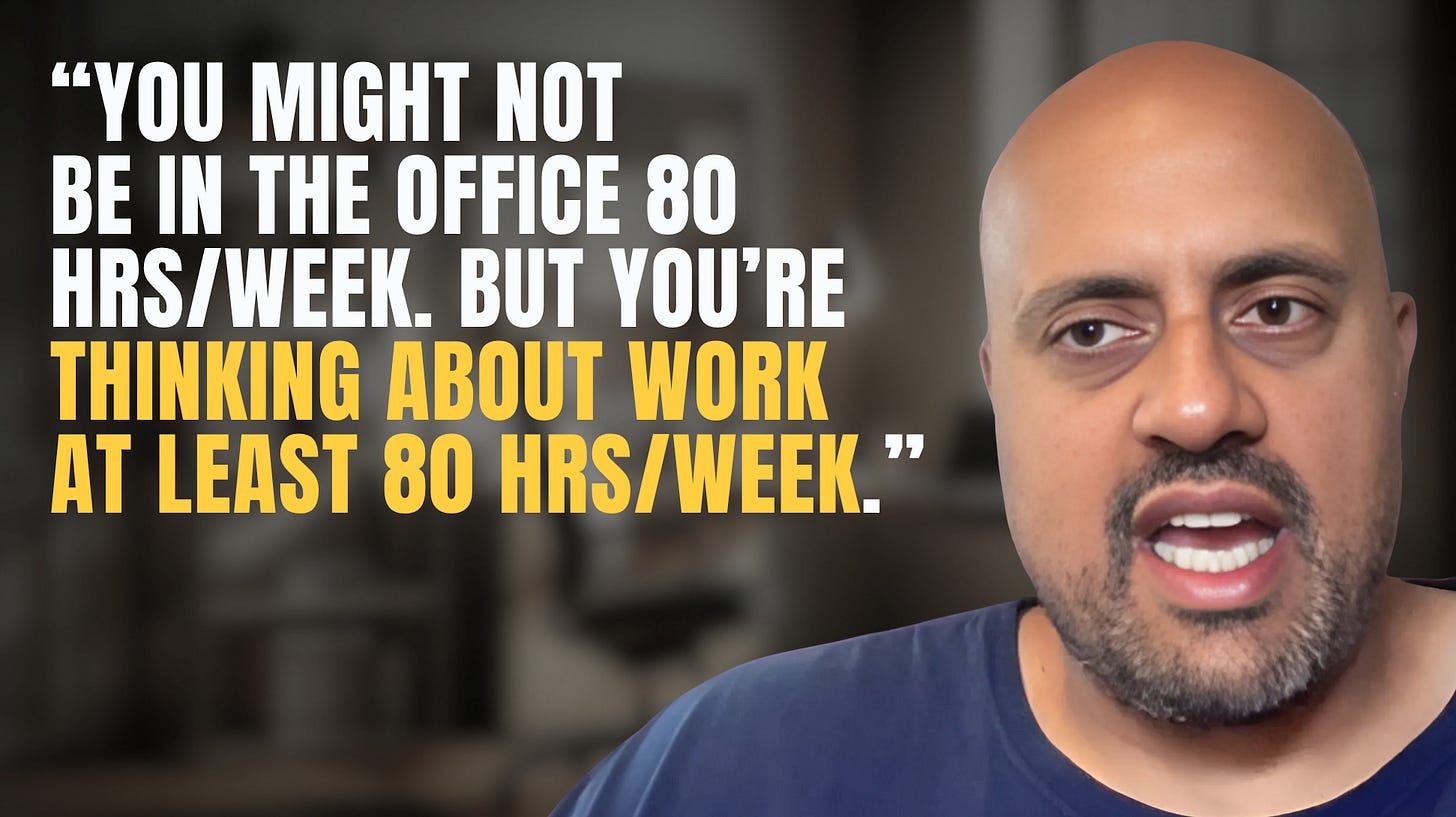Why VC-Backed Startups Are So Draining: The Toll on Families
I’ve worked inside 3 VC-backed companies. But, I’d never really heard the founder POV.
Today’s post is presented by two of my favorite PLG tools:
Appcues: Want to level-up your product adoption chops, for free?
Their Product Adoption Academy is full of courses, templates, and examples to help step-up your game. My Value First Onboarding Playbook (which is in the Academy) outlines the 6-step playbook my team used to activate & engage hundreds of thousands of new accounts. See for yourself!
Navattic: just made it way easier to launch interactive product demos.
Their AI storyboard tool builds your demo for you, and Demo Centers let you showcase personalized flows that match each prospect’s brand - no designers needed. Try it free.
I’ve worked inside 3 VC-backed companies.
I’ve supported 12 others as a PLG advisor.
And, I’ve coached dozens of growth leaders at them too.
They’re tough places to work.
I’ve seen the long hours, the constant pressure to hit the next milestone, and how the “growth at all costs” culture quietly impacts our mental health over time.
But until a recent conversation with Raj Singh, I’d never really heard the founder POV. Not like this anyways.
Raj is a multi-time founder with exits to companies like Salesforce and Mozilla.
Today, he’s the VP of New Products at Mozilla after they acquired his last company, Pulse. He’s lived every phase of the venture-backed grind, from zero-to-one chaos to boardroom pressure - and has the scars to prove it.
The growth formula that quietly runs your life
Triple-triple-double-double-double.
It’s a shorthand VC’s use for the kind of revenue growth they want to see in a high-performing SaaS startup:
Triple revenue two years in a row.
Double it for the next three.
Those numbers set the pace every founder and employee ends up running at.
As an employee, you feel it as constant deadlines and increasing quarterly goals. The pressure to keep pace or get left behind.
As a founder, it hits even harder.
Raj described it simply: “There’s this treadmill you get on. And once you’re on it, you can’t get off. Even when you’re outside of work, talking to another Dad at a kid’s birthday party, you’re always thinking about the next release.”
If you’ve ever felt guilty taking a weekend off because the team might lose ground, you know this feeling.
That triple-triple-double-double-double formula doesn’t just define the company’s growth. It rewires how you experience your entire life.
Raj told me there were mornings he wished he could just reset. “Some days, I just wanted to wake up and have a regular job. Pretend this company never happened.”
The stakes bleed into your personal life
As a startup employee, we know the job doesn’t end when you leave the office.
You take the stress home. It sneaks into your sleep, your health, your relationships. You find yourself checking Slack after hours. Answering emails when you said you wouldn’t. Waking up in the middle of the night thinking about work.
For a founder, the bleed is even deeper.
Raj told me during one of the company’s most intense phases, he wasn’t chained to an 80-hour desk week. But he was thinking about work 80 hours a week.
That’s the part nobody warns you about. The company doesn’t take your time first. It takes your attention.
And when that happens, the people closest to you feel it too.
No matter how great you’ve been, you have to be better next quarter
For employees, this is the reality of a VC-backed company.
The mountain keeps growing exponentially. The role you crushed last quarter might already be outgrowing you. What got you here won’t get you there. And if you can’t keep pace, the company moves on.
In between building his own businesses, Raj was on the leadership team when a new executive was hired above him. He’d been there from the beginning. He’d delivered. But the business needed someone different. “It felt like a punch to the gut,” he said. “You think: am I not good enough? Can’t I grow into this?”
For employees, those moments feels like a career setback. The bar keeps moving faster than most of us can grow.
And that kind of doubt doesn’t shut off when you leave the office. It follows you home. It sits next to you at dinner. It keeps you awake when you’re supposed to be resting.
That’s why these companies can be so draining. They make you believe you’re only as good as the last milestone you hit - whether you’re leading a team or running the whole thing.
The quiet cost
Most people see the funding announcements. The flashy hires. The wins.
What they don’t see are the sleepless nights. The identity shifts employees go through when the company grows past them. The silent trade-offs on health and relationships that never make it into a board deck.
Hearing Raj describe it made me realize how little I understood the weight founders carry. I’d felt the pressure as an employee, but never understand the stakes like this.
This is just a slice of Raj’s story. Our full conversation gets into the decisions, trade-offs, and quiet costs that don’t make it into TechCrunch.
Catch Raj’s full conversation - the tough career moments, leadership lessons, and founder POV almost nobody shares:
Or listen on Spotify
Want help building your own version of what’s next?
Get my Free 5-day growth leadership email course
A set of battle-tested frameworks, prompts, and scripts I use with senior growth and marketing leaders to set priorities, align teams, and lead with more clarity.
→ Download the free Growth Leadership Toolkit
Book a 1:1 Coaching Spot
I work with a small group of ambitious growth leaders navigating what’s next—whether that’s a career leap, a team transition, or a more energizing way to lead.
→ Learn more about coaching



